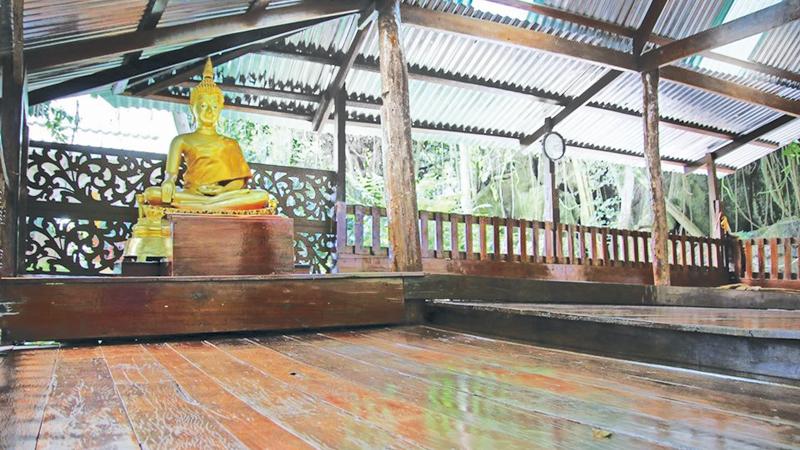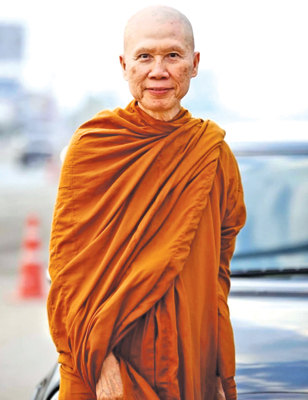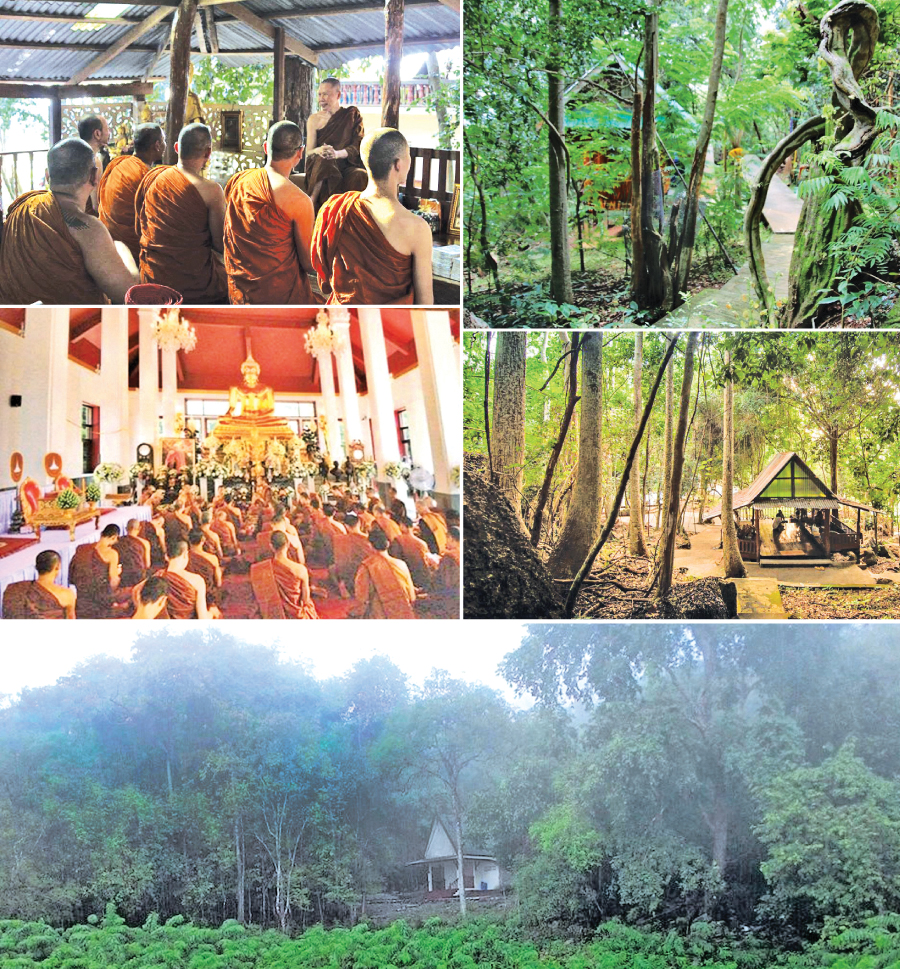
Following are excerpts from an interview with reputed Theravada Bhikkhu and renowned Meditation Guru Ven. Ajahn Suchart Abhijato Maha Thera of Thailand.
Q: According to modern science, sleep is essential for our health, and 7-8 hours of sleep is usually recommended. Could you elaborate on the Buddha’s stance on the importance of sleep? According to Buddhist writings, the Buddha slept less than three hours a day. Did the Buddha give any importance to sleep at all? Could you explain?
A: Well, the Buddha recommended bhikkhus to sleep about four hours a night. From 6 pm to 10 pm, bhikkhus should be doing walking or sitting meditation. Then from 10 pm to 2 am bhikkhus should take a rest and sleep. Then after 2 am bhikkhus have to get up and do more walking and sitting meditation until 6 am and then it starts to go on alms rounds. So yeah, sleep is essential, your body needs sleep, but it does not need seven or eight hours like the people in the world do. For people who meditate four hours a night is good enough.
Q: Are post–bereavement hallucinations and voices possible/real? I have often heard people telling that they have undergone this experience soon after the death of a relative. Can this happen?
A: Many things had happened in the mind. And the way to deal with them is to ignore them or treat them as natural phenomena, or treat them as anijja, anatta. They come and go, and there is nothing that you can do to stop/prevent them. Let them come, let them go. Do not give them any importance. They are just phenomena.
 Ven. Ajahn Suchart Abhijato Maha Thera |
Q: Sak Surin, the Thai tusker that was allegedly abused in Sri Lanka was airlifted to Thailand earlier this month. Elephants are mistreated and mishandled in a variety of ways. They are used in circuses, amusement parks, religious ceremonies, and labour-intensive tasks such as dragging logs. Numerous organizations that advocate for elephant welfare expressed their opposition to keeping elephants in captivity once more following Sak Surin’s incident. Elephants belong in the wild, not in captivity, are the basic defences. Many animals, not just elephants are held in captivity.
i) What is the Buddhist perspective on keeping animals in captivity? Should we keep any animal in captivity at all?
A: Well, the Buddhist view regarding animal captivity is that we should not put an animal in captivity because we do not like to be kept in captivity ourselves, so we do not want to treat others likewise. But in some cases, you might have to keep an animal in captivity for their own welfare or the welfare of the public because, sometimes, if they are allowed to roam, they might cause harm to other people. If that is the case they have to be put in a cage to prevent them from hurting others, and also hurting themselves because they eventually might get killed. So captivity must be for special reasons, but generally speaking, we should not put animals or people in a cage. We should let them live freely.
Q: Elephants are used in Buddhist Processions. The tusker is considered a sacred/special animal as it is used to carry the sacred relics of the Buddha during the procession seasons. Some Buddhists are of the view that the tusker acquires a lot of merit by carrying the sacred Relics of the Buddha as it is a wonderful opportunity for the animal to be trained to perform a sacred task. Does the tusker acquire merit by performing such tasks? Does the elephant have a feeling that it is performing a sacred act?
A: No, because the elephant does not know what it is doing. As you know, in order for you to make merit you should know that you are doing something good for somebody. Then you can gain merit. But if you are forced to do it, you are just doing it because you are like a slave. Then you do not get any merit.
Q: Doesn’t the elephant have a feeling that it is performing a sacred act?
A: I don’t think so. The elephant does not know what is going on.
Q: Some people hold the view that animals are made for human consumption/use and therefore animal abuse is acceptable. What is the Buddhist point of view?
A: The Buddhist view is we should have loving kindness for all forms of beings -whether humans or animals. We should not treat them badly or abuse them. You should give them loving kindness.
Q: I recently came across a social media post that said that those who overreact to animal suffering or who are fully devoted to animal welfare are more likely to be reborn in non-human or animal realms in their subsequent births. Is there any truth behind such claims based on the teachings of the Buddha?
A: No, there is no truth to this at all. The only way that you can be born as an animal is when you break the Precepts like killing, stealing, committing adultery, or lying. This can cause you to be reborn in the animal realms of existence. Otherwise, if you have close contact with animals that does not mean that you will be reborn as animals
Q: In which Suttas, did the Buddha highlight the importance of treating animals with loving kindness? Could you enlighten us on the precise teachings of the Buddha regarding the treatment of animals?
A: I cannot quote a Sutta, but I can quote you the general teachings of the Buddha - we should have the four Bharma Viharas (the four Divine Virtues of Buddhism),when dealing with other beings –that is Loving Kindness, we should have Compassion, we should have Sympathetic Joy, and should have Equanimity when we deal with every type of beings whether human or animal.
Q: What qualities should an ideal Buddhist possess?
A: Again, they should possess Four Bhahma Viharas -Metta, Karuna, Muditha, and Upekka translated as loving kindness, compassion, sympathetic joy, and equanimity.
Q: Is it more virtuous to offer eatables to a starving human than an animal?
A: No, you get the same merit whether you offer to a human or an animal.
(Ven. Ajahn Suchart Abhijato Maha Thera was born on November 2, 1947. Having completed his degree in Civil Engineering at California State University, Fresno, USA, he returned to his motherland where he designed an ice cream parlour for a brief stint.
Quite soon, inspired by a Dhamma book, he decided to go in search of ‘true happiness,’ to find inner peace through the practice of Buddhist meditation. He became a bhikkhu at the age of 27 and received ordination at Wat Bovornives in Bangkok on February 19, 1975, with Somdet Phra Ñanasarivara, the late Supreme Patriarch (Somdet Phra Sangharaja), as his preceptor.)

